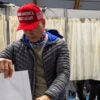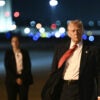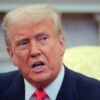On April 6, last minute action by the Obama administration averted a near trade conflict with Brazil concerning the trade-distorting U.S. cotton subsidy programs. With the provisional deal, the U.S. avoided about $830 million in trade sanctions on over 100 American exports targeted by Brazil. Those retaliatory tariffs would have gone into effect on April 7. More changes to U.S. cotton programs, which were declared illegal under the WTO’s 2008 ruling, have been pushed back to as early as 2012 when Congress will have to revisit the farm bill.
So, a trade war was avoided. More precisely, it has been delayed. Considerable murkiness lingers on the trade horizon, and not just with Brazil. As Friday’s WSJ editorial points out:
The Daily Signal depends on the support of readers like you. Donate now
- WTO-approved retaliation to counteract U.S. trade violations is spreading. More than $3.4 billion [in] U.S. exports now face punishing retaliation tariffs.
- The U.S.’s most economically damaging trade war is with Mexico. As part of the North American Free Trade Agreement ([NAFTA]), the U.S. is supposed to give Mexican trucking companies access to the U.S. But 17 years into [NAFTA], Mexican trucks still don’t cross the border, because the Teamsters union won’t accept the competition. A [NAFTA] dispute panel [has] authorized Mexico to retaliate. Last year it imposed duties on $2.4 billion of U.S. exports.
- The [European] Union and Japan have also asked the WTO for authorization to retaliate because the U.S. Commerce Department insists on deciding antidumping cases with an arcane calculation that the WTO ruled against in 2007. As a result, according to the trade publication “Inside U.S. Trade”, both Japan and the European Union are eyeing retaliation. The total value of U.S. exports affected could top $500 million.
The fallout from U.S. protectionism will hurt our ongoing economic recovery efforts. The protectionism itself is doing irrevocable damage to America’s leadership in international economic discussions. Free trade and its expansion through multilateral, regional, and bilateral agreements have been vital to world economic strength and prosperity.
Treasury Secretary Tim Geithner commented during his recent two-day visit to India that President Obama “was ‘deeply committed’ to trying to build a consensus among Americans for more open trade and to support the [economic] recovery,” as noted in the Financial Times. While the Obama Administration has repeatedly said that the U.S. will not abandon its legacy of supporting open and free commerce, the fact is that it has done little to nothing to demonstrate that commitment in more substantive terms. One sign of inaction: three pending free trade agreements with Panama, Colombia, and South Korea remain on ice.
Talking about “strengthening” America’s trade relations around the world, boosting exports, and even enforcing trade rules are only empty gestures without tangible action to re-establish America’s leadership in advancing free trade.
































